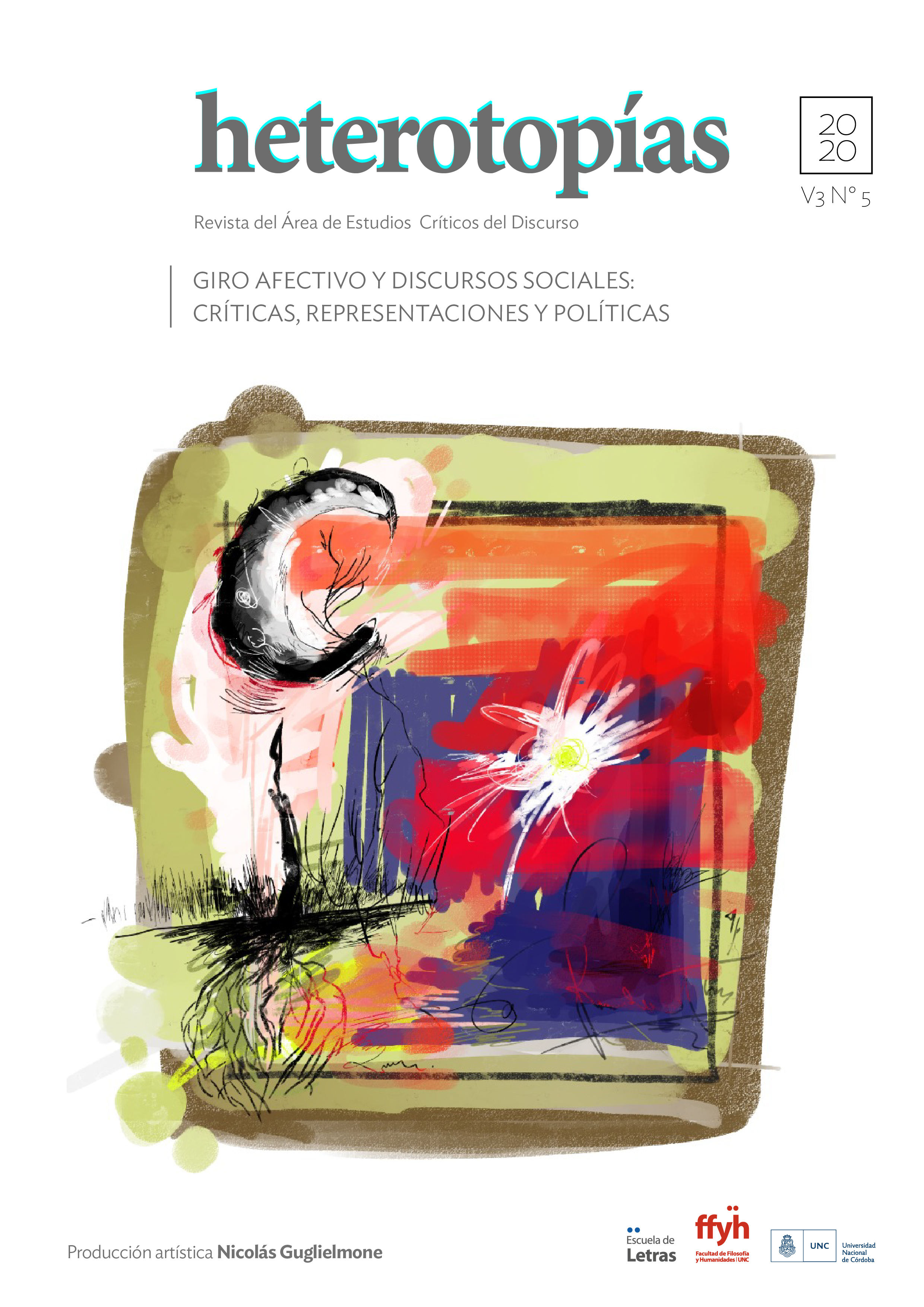Love politics
Main Article Content
Abstract
The work aims to investigate the constitution of love as a discursive sociological object. This point of view has its theoretical framework in the theories of M. Bajtín and M. Foucault who consider discourse as a social fact (Bajtín), distancing themselves from linguistics to obtain a more extensive vision of discursiveness (Foucault). We also consider the material effects on the social constitution of the subjects. These effects are related to two aspects of social languages: their performative functioning and their role as models. Although we are not going to dwell on the implementation of these concepts, we want to underline their importance as a framework for this reflection. The final intention of the article is to present a positive idea of love passions, thinking of them as a thermometer of social spaces that we provisionally call public spaces, to reinvict emotions that from certain positions of feminism are viewed and criticized negatively. With this we want to point out, on the one hand, the importance of the subject in the context of a certain culture and, on the other hand, to mark the historical limitation of the concept of love.
Downloads
Article Details

This work is licensed under a Creative Commons Attribution-NonCommercial-ShareAlike 4.0 International License.
Those authors who have publications with this journal, accept the following terms: Those authors who have publications with this journal, accept the following terms:
a. The authors will keep their copyright and guarantee to the journal the right of first publication of their work, which will be simultaneously subject to the Creative Commons Attribution - Non-Commercial - Share Alike (by-nc-sa) Attribution License; no commercial use of the original work or any derivative works is allowed, the distribution of which must be done with a license equal to the one that regulates the original work.
b. Authors may adopt other non-exclusive license agreements for the distribution of the published version of the work (e.g., deposit it in an institutional telematic archive or publish it in a monographic volume) provided that the initial publication in this journal is indicated.
c. Authors are allowed and recommended to disseminate their work through the Internet (e.g. in institutional telematic archives or on their website) before and during the submission process, which may lead to interesting exchanges and increase the number of citations of the published work. (See The effect of open access).
How to Cite
References
Anastasía, P. y Boria, A. (Comps.) (2019). Prácticas teóricas 3: El lugar de los afectos. Córdoba: Ferreyra-CEA.
Arendt, H. (1993). La condición Humana. Barcelona: Paidós.
Austin, J. (1998). Cómo hacer cosas con palabras. Palabras y acciones. Barcelona: Paidós.
Badiou, A. (2012). Elogio del amor. Buenos Aires: Paidós.
Bajtín, M. (1985). Estética de la creación verbal. Madrid: Siglo XXI.
Bajtín, M. y Mevdeved, P. (1994). El método formal en los estudios literarios. Madrid: Alianza.
Barthes, R. (1991). Fragmentos de un discurso amoroso. México: Siglo XXI.
Biset, E. (2013). Derrida y lo político. Confines, 30, 23-37.
Boria, A. (2003). El discurso amoroso. Tensiones en torno a la condición femenina. Córdoba: Comunicarte.
Catelli, N. (2001). Testimonios tangibles. Pasión y extinción de la lectura en la narrativa moderna. Barcelona: Anagrama.
Coelho, F. (s.f.). Amor: origen y etimología de la palabra. Recuperado de https://www.diccionariodedudas.com/etimologia-de-amor/
Foucault, M. (1995). Historia de la sexualidad. 1. La voluntad de saber. México: Siglo XXI.
Gay, P. (1992). La experiencia burguesa. De Victoria a Freud, Tomo 1. La educación de los sentidos y 2. Tiernas Pasiones. México: Fondo de Cultura Económica.
Gilabert Barberà, P. (2007). El amor en Plutarco: la necesaria corrección platónica de Platón. En Actas IX Simposio Internacional de la Sociedad Española de Plutarquistas (pp. 123-132). León: Secretariado de Publicaciones, Universidad de León.
Gusdorf, G. (1993). Le romantisme. Tome 1: Le savoir romantique. París: Payot.
Hauser, A. (1968). Historia social de la literatura y el arte. Tomo 2. Madrid: Guadarrama.
Hobsbawm, E. (1997). La era de la revolución. 1789-1848. Buenos Aires: Critica.
Kristeva, J. (1985). Historias de amor. México: Siglo XXI.
Lotman, Y. (2011). Estructura del texto artístico. Madrid: Akal.
Marx, C. y Engels F. (2011). Manifiesto del partido comunista. México: Centro de Estudios Carlos Marx.
Perrot, M. (1989). Dramas y conflictos familiares. En Aries, P. y Duby, G. (Comp.). Historia de la vida privada. La Revolución Francesa y el asentamiento de la sociedad burguesa. Madrid: Taurus.
Stendhal (1998). Del Amor. Madrid: Alianza.
